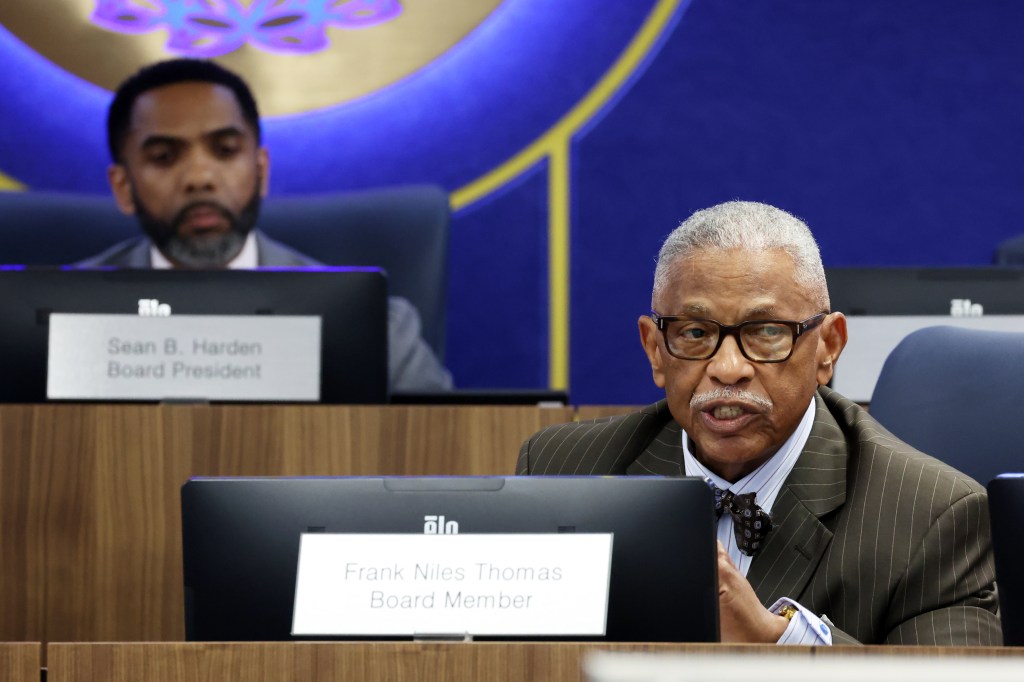The Chicago Board of Education is set to appoint a new board member the same day as a scheduled vote on a budget for Chicago Public Schools’ upcoming fiscal year, capping months of debate over how to close a looming deficit while navigating lingering political tensions.
The scheduled “oath of office,” according to an agenda posted two days prior to Thursday afternoon’s board meeting, marks another shift in leadership for a body still grappling with the fallout from a mass resignation last fall.
The board’s 21st seat — vacated by Frank Niles Thomas — will be filled by Ángel Vélez, a diversity, equity and inclusion consultant from West Englewood, according to a spokesperson for Mayor Brandon Johnson, who confirmed the appointment to the Tribune Wednesday.
At the center of the board meeting is a deficit that district officials say stretches into the hundreds of millions, which has led to intense debate between board members in recent weeks. Much of the tension can be traced back to a desired $175 million pension payment made to the city and an earlier borrowing plan backed by Johnson, a former teachers union organizer, that helped trigger the previous board’s resignation in October 2024.
That mass departure left Johnson to appoint new members, some of whom were incorporated into the current transitional hybrid board, which is composed of 11 mayoral appointees and 10 elected representatives.
Over the summer, CPS leadership — including new interim CEO Macquline King — has been working with City Hall, the Chicago Teachers Union, community organizations, and city and state lawmakers to finalize a budget that they say avoids deep classroom cuts while satisfying pension obligations and long-term debt.
The district presented a proposal in mid-August that avoided borrowing and offset the pension payment. Johnson-aligned board members balked at the plan, arguing that forgoing the $175 million reimbursement to the city for the city-run pension fund that covers non-teaching CPS employees would be irresponsible, as it would harm relationships with aldermen and City Hall.
The new board member could have some sway over the outcome of the budget vote. Unlike board colleagues, though, Vélez will have had little to no opportunity for an in-depth training or engagement with community stakeholders.
The proposal needs a simple majority — or 11 of 20 votes — to pass. The board’s president, Sean Harden, only votes in a tie.
Not passing a budget would hurt the district’s standing with the state, according to school finance experts, and could even affect CPS’ ability to make payroll.
The state created the School Finance Authority in 1980 to oversee CPS finances, following a large debt crisis marked by missed payrolls and a loss of creditworthiness. The city eventually regained control of the district’s finances and financial decisions in 1995 following the passage of education reform by the state.
The meeting will be held at CPS headquarters in the Loop. In the past, board members have changed resolutions by introducing and voting on floor amendments amid lively debate.
Originally Published: August 27, 2025 at 3:45 PM CDT
